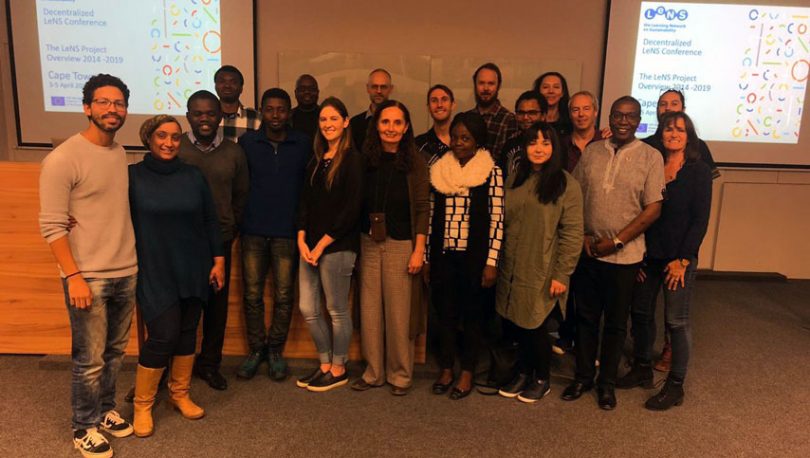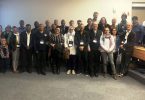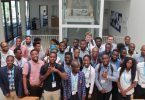A unique international conference on Design for Sustainability was recently hosted at SARETEC by CPUT in partnership with Stellenbosch University.
The uniqueness of the conference lies in the fact that it was taking place simultaneously in six venues across the world. The conference called the LeNS World Decentralised Conference, took place in Cape Town, Beijing, Milan, Mexico City, Bangalore and Curitiba. The hybrid conference, which combined traditional conference delegate attendance and virtual attendance through videoconference, had time-zone challenges as the time differences among venues range from one to 14 hours. There was a 90-minute shared slot where proceedings from all venues were happening live.
Ephias Ruhode, Associate Professor of Transdisciplinary Studies in the Faculty of Informatics and Design (FID) and acting Faculty Research coordinator, said they overcame a huge challenge.
“We were so surprised that we surpassed our own expectations because the organisation and running of this incredible “world multi-local” conference was extremely challenging. Here is how the conference was configured: in the shared time-slot when all the six venues were live, we would converge in one virtual venue via videoconference mediation and attend certain common activities like opening and closing addresses, keynote speeches, prize giving and manifesto signing. Due to time differences, research paper presentations were done locally to each venue’s audience. Each presentation from all venues was also video-recorded and played in other parallel venues to allow delegates to choose their preferred research themes.”
The conference was the last deliverable of the LeNSin projects, a three year EU-supported (ERASMUS+) project involving 36 universities from Europe, Asia, Africa, South America and Central America. Other deliverables included two pilot courses in sustainable product service systems and distributed economies and the establishment of transdisciplinary research labs across the participating universities. The LeNSin project is aimed at the promotion of a new generation of designers (and design educators) capable of effectively contributing to the transition towards a sustainable society for all.
Ruhode added, “I am excited because such projects make CPUT a truly international university, in line with our internationalisation strategy. The fact that diverse cities and universities in the world effectively came together in a unique conference, to share transdisciplinary knowledge in a learning-by-sharing open ethos, is what makes us proud”.
- CPUT and Stellenbosch are the South African partners in the LeNSin project. Prof Ruhode is the African coordinator of the project.







